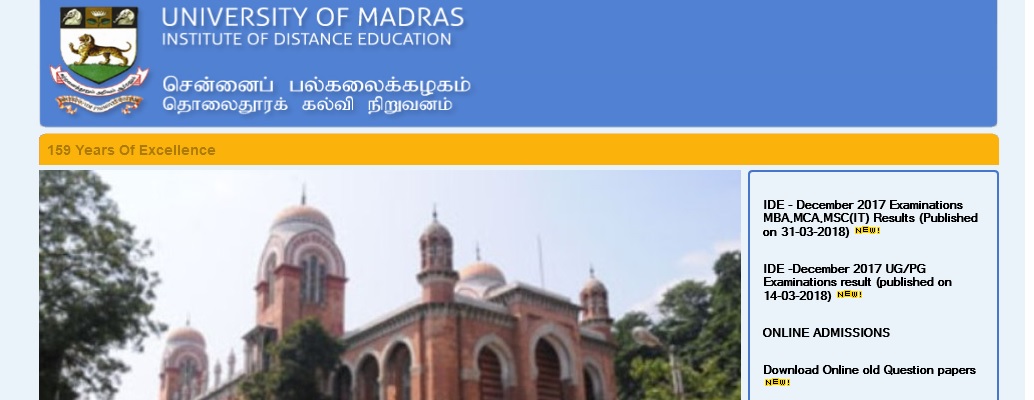NGJ Abnormal Psychology B.Sc Question Paper : ideunom.ac.in
University : University of Madras
Degree : B.Sc
Department : Psychology
Subject :NGJ Abnormal Psychology
Document type : Question Paper
Website : ideunom.ac.in
Download Previous/ Old Question Paper :
OCT 2011 : https://www.pdfquestion.in/uploads/ideunom.ac.in/6873-._QBNEW_uid1702%20NGJ.pdf
OCT 2012 : https://www.pdfquestion.in/uploads/ideunom.ac.in/6873-._DEC12_uid1702%20NGJ.pdf
OCT 2013 : https://www.pdfquestion.in/uploads/ideunom.ac.in/6873-._DEC2013_uid1702%20NGJ.pdf
MAY 2011 : https://www.pdfquestion.in/uploads/ideunom.ac.in/6873-._MAY2011_uid1702NGJ.pdf
MAY 2012 : https://www.pdfquestion.in/uploads/ideunom.ac.in/6873-m12._QBNEW1_UID1702%20NGJ.pdf
MAY 2013 : https://www.pdfquestion.in/uploads/ideunom.ac.in/6873-._MAY2013_uid1702%20NGJ.pdf
IDEUNOM NGJ Abnormal Psychology Model Paper
OCTOBER 2011 U/ID 1702/NGJ
Time : Three hours
Maximum : 100 marks
Related : University of Madras UTGA Rehabilitation Psychology B.Sc Question Paper : www.pdfquestion.in/6882.html
PART A — (15 ´ 2 = 30 marks)
Answer ALL questions.
All questions carry equal marks.
Each answer should not exceed 50 words.
1. Mention the three dimensions of abnormality.
2. What is psychiatric social work?
3. Write brief note on Yunani system.
4. Define model.
5. Define anxiety.

6. What are the kinds of noxious agents?
7. What is stress?
8. Mention the major symptom of phobic neurosis.
9. Mention the characteristics of process schizophrenia.
10. What are the subgroups of affective disorders?
11. Mention the treatment methods of suicide.
12. Define mental retardation.
13. Give the names of two stimulants.
14. Who is a delinquent?
15. Mention any two professional organizations concerned with mental health.
PART B — (5 ´ 6 = 30 marks)
Answer any FIVE questions.
All questions carry equal marks.
Each answer should not exceed 300 words.
16. Write about the concept of mental disorder in modern period.
17. Write about the humanistic model of abnormal behaviour
18. Examine the socio-cultural causes of abnormal behaviour.
19. What are the types of hysterical neuroses? Explain.
20. Examine the common characteristics of schizophrenia.
21. How do you predict the suicidal tendency of an individual? Explain.
22. Write about the prevention, remedy and care of mental retardation
23. What are the factors contributing to sociopathy? Explain.
PART C — (2 ´ 20 = 40 marks)
Answer BOTH the questions.
All questions carry equal marks.
Each answer should not exceed 1,200 words :
24. (a) What are the misconceptions regarding mental disorders?
Or
(b) Explain the psychodynamic model of abnormal behaviour.
25. (a) Write about the hereditary causes of abnormal behaviour.
Or
(b) What are the types of drinking? Examine the effects of alcohol.
OCTOBER 2012 U/ID 1702/NGJ
Time : Three hours Maximum : 100 marks
PART A — (15 × 2 = 30 marks)
Answer ALL questions.
All questions carry equal marks.
Each answer should not exceed 50 words.
1. Define Abnormality.
2. Write the meaning of the term – Trephination.
3. What is known as Fixation?
4. Give an illustration for undoing.
5. What is known as ‘Logotherapy’?
6. Mention the common symptoms of Anxiety Disorder.
7. Outline the meaning of the term – Hypochondriacsis.
8. What cause Affective Disorder?
9. What is D.S.M. Known as?
10. Outline the teacher’s classification of mental retardation.
11. Mention any two psychoactive drugs.
12. Write the role of Alcoholic Anonymous.
13. Write about the disorder caused by excessive alcohol consumption.
14. What is sociopathic personality?
15. What are the signs of Sound Mental Health?
PART B — (5 × 6 = 30 marks)
Answer any FIVE questions.
All questions carry equal marks.
Each answer should not exceed 300 words.
16. Write a note on the various misconceptions related to Mental Disorder.
17. Outline the Incidence of Mental Disorder in India.
18. Explain the views of Humanistic model in the understanding of Abnormality.
19. Discuss about O.C.D.
20. Bring out the clinical picture about schizophrenia.
21. Outline the symptoms of Biopolar disorder
22. Highlight the causes and types of Mental Retardation.
23. Give a brief account on Drug Abuse.
Part C : (2 × 20 = 40 marks)
Answer BOTH the questions.
All questions carry equal marks.
Each answer should not exceed 1200 words :
24. (a) Discuss the subject details of Abnormal psychology.
Or
(b) Give a detailed account on the historical note of the field of abnormal psychology.
25. (a) Highlight various causes for Abnormal Behaviour.
Or
(b) Explain the term epilepsy and outline the methods of treatment.
OCTOBER 2013 : U/ID 1702/NGJ
Time : Three hours
Maximum : 100 marks
PART A — (15 ´ 2 = 30 marks)
Answer ALL questions.
All questions carry equal marks.
Each answer should not exceed 50 words :
1. What is abnormal psychology?
2. Define psychiatry.
3. Define mental hygiene.
4. What is paradigm?
5. What is perspective?
6. What is the consequence of inadequate mothering?
7. Define conflict.
8. Mention the symptom of anxiety neurosis.
9. Mention the categories of schizophrenia.
10. Mention the subtypes of manic disorder.
11. Define mental retardation.
12. Write brief note on sheltered workshop.
13. Who are alcoholics?
14. Define crime.
15. Define mental health.
PART B : (5 ´ 6 = 30 marks)
Answer any FIVE questions.
All questions carry equal marks.
Each answer should not exceed 300 words :
16. What are the dimensions of abnormality? Explain.
17. Write about the behaviouristic model of abnormal behaviour.
18. Bring out the biological causes of abnormal
behaviour.
19. Write about theories of phobias.
20. What are the subcategories of schizophrenia? Explain.
21. Explain the cognitive and learning theories of depression.
22. Examine Piaget’s theory of mental process.
23. Bring out the causes of alcoholism.
PART C : (2 ´ 20 = 40 marks)
Answer BOTH the questions.
All questions carry equal marks.
Each answer should not exceed 1,200 words :
24. (a) Write about the mental disorder in Indian thought.
Or
(b) Examine the psychological causes of abnormal behaviour.
25. (a) Write about the etiology of schizophrenia.
Or
(b) What are the perspectives on prevention of mental disorder? Explain.